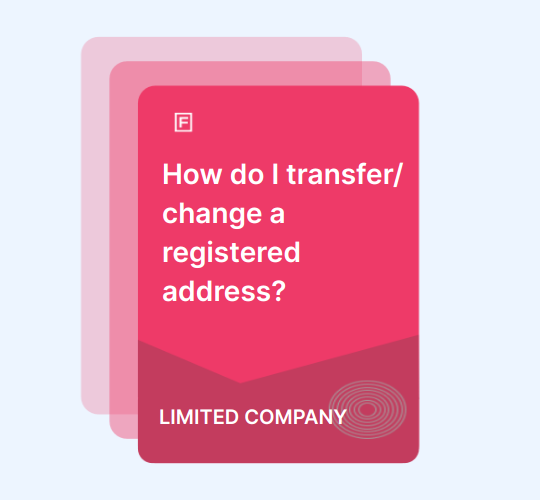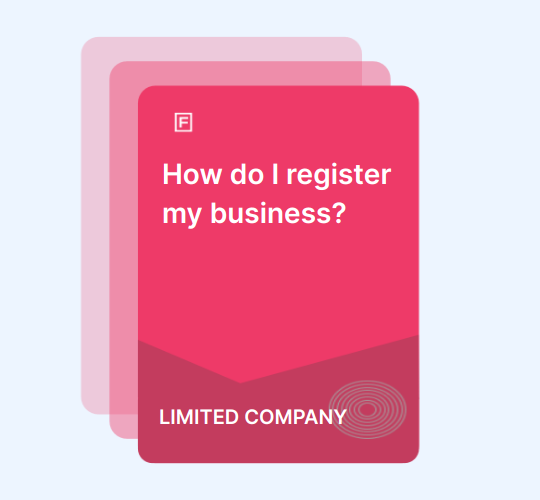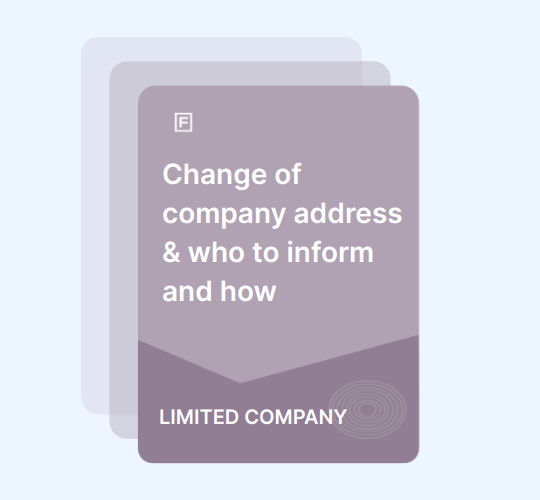Limited Company vs Sole Trader
While operating as a sole trader is a simple and cost-efficient way to start a business, there are significant advantages to running your own limited company.
A limited company is a separate legal entity from its owners. As such, you’re protected by limited liability. Should your company go into debt, you’re only legally responsible up to the extent of the nominal value of your shares.
Running a limited company offers a more tax-efficient way to operate. Relative to sole traders, you’re able to pay a lower rate of income tax and NICs, as well as claim a wider range of allowable business expenses.
Being registered as a limited company also lends credibility to your company. This could lead to increased business opportunities, particularly for contractors, as it isn’t uncommon for established organisations to specify that they’ll only work with freelancers operating through their own limited company.
You’ll also benefit from easier access to funding. As a separate legal entity, your company presents a lower risk to lenders—which increases your chances of obtaining external financing at a lower interest rate, compared to sole traders. Additionally, you have the option of raising funds through selling shares.
Limited Company Advantages vs Disadvantages
You need to choose the type of limited company you need (public limited company or private limited company), choose a company name and decide on how you’re going to set up your company. For the latter, you have the option of registering with Companies House or using a third-party service, like an accountant or company formation agent
Once you’ve gotten these sorted out, you’ll be ready to begin the company formation process.
This involves completing documents like the Memorandum of Association, Articles of Association, Form 10 and Form 12, after which your application will be processed. Companies House will typically provide an update in the next working day, and mail out a hard copy of your articles of incorporation.
Now that you’ve registered your company, there are a few additional items to cross off your checklist.
You need to open a business bank account, ensure that you’ve received your company UTR number and complete your VAT registration (or if you were VAT-registered as a sole trader, you need to notify HMRC of your transition to a limited company structure).
You’ll also need to set up your payroll, update your company details on your website and business documents (such as your order forms and business letters), and get your accounts sorted out.
How to Register a Limited Company & free limited company registration
Before you begin your registration process to set up a limited company, there are a few things you need to consider.
You need to choose the type of limited company you need (public limited company or private limited company), choose a company name and decide on how you’re going to set up your company. For the latter, you have the option of registering with Companies House or using a third-party service, like an accountant or company formation agent.
Once you’ve gotten these sorted out, you’ll be ready to begin the company formation process.
This involves completing documents like the Memorandum of Association, Articles of Association, Form 10 and Form 12, after which your application will be processed. Companies House will typically provide an update in the next working day, and mail out a hard copy of your articles of incorporation.
Now that you’ve registered your company, there are a few additional items to cross off your checklist.
You need to open a business bank account, ensure that you’ve received your company UTR number and complete your VAT registration (or if you were VAT-registered as a sole trader, you need to notify HMRC of your transition to a limited company structure).
You’ll also need to set up your payroll, update your company details on your website and business documents (such as your order forms and business letters), and get your accounts sorted out.
Limited Company Filing Deadlines
Being a limited company director comes with several legal responsibilities. In addition to your statutory duties, you’re also responsible for meeting your filing deadlines.
These include:
- File your Self Assessment by 31st January following the end of the relevant tax year.
- If you’re VAT-registered, you need to file your VAT returns 1 month and 7 days after your VAT quarter end date.
- File your company accounts 9 months after your company year-end. If you’re in your first trading year, your first annual accounts are due 21 months after your date of incorporation
- File your Confirmation Statement up to 14 days after the due date. The due date is 12 months after the date your company was incorporated, or 12 months after the date you filed your previous Confirmation Statement.
- File your company tax return 12 months after the end of the relevant tax year.
- If you’ve just begun employing staff or using subcontractors for construction work, you need to register as an employer before an employee’s first payday.
- If you already have employees, there are a number of deadlines you need to meet for your payroll year end.
- Submit your final payroll report for the year before your employee’s final payday for the tax year ending 5th April.
- Provide your employees with the P60 by 31st May (following the end of the relevant tax year).
- File employee benefits and expenses using your payroll software, and submit your P11D and P11d(b) forms by 6th July.
- In addition to the payroll year-end deadlines, you’re also required to:
Send the FPS on or before your employees’ payday. The FPS must be submitted each time you pay your employee. This means that if your employee is paid weekly, you’ll need to make 52 submissions across the year.
How to set up a Limited Company: everything you need to know about starting a Limited Company
“What do I need to do after setting up a limited company?” is a question we’re often asked by users who’ve registered for our limited company accounting packages.
Here’s a brief overview of what you need to do:
- Fulfill your responsibilities as a limited company director
- Open a business bank account
- Keep your stakeholders updated: If you’re transitioning from being a sole trader to a limited company structure, you’ll need to notify stakeholders—like your banks, debtors, landlords and insurers—of the change. With stakeholders like your suppliers and customers, you may need to review your contract, and transfer it to your new company.
- Get your VAT sorted out: You may need to register for VAT. And if you’re already VAT-registered, you may request for a transfer to be made to your new company, or cancel your VAT and complete a re-registration.
- Set up your payroll
- Ensure that your company details are up-to-date: As a limited company, you need to meet specific requirements when it comes to displaying your company information. Your company name must be included on all company documents, letters and communication materials. In addition, your websites, business letters and order forms must show your company’s registered number, registered office address, where your company is incorporated and indicate that your company is a private limited company.
- Obtain business insurance: If you’re an employer, you’re legally required to obtain employer's liability insurance. Other types of business insurance you should consider getting include public liability insurance, professional indemnity insurance and business contents insurance.
- Get your books sorted: If you were already using an accounting package as a sole trader, you’ll need to create a new account and start anew. And even if you were managing your own accounts before, do note that the requirements of limited company accounting can be complicated—so you’ll benefit from using accounting software, or from the expertise and advice of a specialist accountant.












.webp)







































